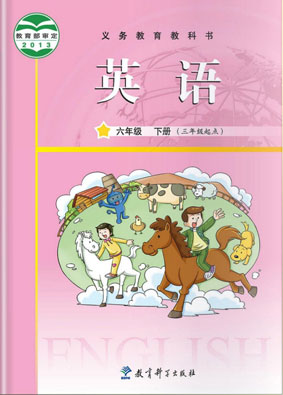Unit 7 It's the polite thing to do课文原文、中英文对照及听力音频听读
Module 4 Good manners - 广州教科版英语六年级下册
Module 4 Good manners 翻译:模块4 文明礼仪
Unit 7 It's the polite thing to do 翻译:第七单元 这样做是有礼貌的
Let's talk 翻译:让我们谈一谈
Hey, Ben! 翻译:嘿,本!
What will you do if you see an old lady standing on the bus? 翻译:如果你看到公交车上站着一位老妇人你将会怎么做?
That's easy. 翻译:那很简单。
If she does not have a seat, I will give her my seat. 翻译:如果她没有座位,我将把我的座位让给她。
Why? 翻译:你为什么这么问呢?
Well, today on the bus, I stood up to give my seat to an old lady. 翻译:嗯,今天在公交车上,我本想把我的座位让给一位老妇人,自己站着。
But before I could say anything to her, a young man quickly sat down. 翻译:但就在我想跟她说让座一事之前,一个年轻人快速坐了我的位子。
How impolite! 翻译:多没礼貌啊!
We should always give our seat to people in need. 翻译:我们应该总给有需要的人让座。
It's the polite thing to do. 翻译:这样做是很有礼貌的。
That's right. 翻译:你说的很对。
I don't like impolite people. 翻译:我不喜欢不礼貌的人。
Yesterday, as I waited in line at the supermarket, a girl tried to push in. 翻译:昨天,我在超市排队等候时,一个小女孩试着挤着插队。
She didn't even say "Excuse me". 翻译:她甚至没有说声“对不起。”
People should always wait for their turn. 翻译:人们应该排队等候。
If the line is long, don't push in. 翻译:如果队伍太长了,不能插队,
Be patient! 翻译:要耐心一点!
be quiet 翻译:保持安静
playing in class when the teacher is talking 翻译:老师讲课时互相嬉戏
wait until you finish 翻译:等吃完了再说话
talking with your mouth full 翻译:口含满嘴食物交谈
share with others 翻译:与他人分享
taking all the food from the dish 翻译:把盘里的食物全部拿走
be kind 翻译:友好的
laughing at another pupil 翻译:嘲笑其他学生
Fun with language 翻译:语言乐趣
Read and match. 翻译:读一读并配一配。
May I use your pen? 翻译:我可以用你的钢笔吗?
Yes, of course. 翻译:好的,当然可以。
Excuse me. 翻译:打扰了。
Could you tell me the way to the train station? 翻译:你能告诉我去火车站的路怎么走吗?
Sorry, I don't know. 翻译:不好意思,我不知道。
Help yourself to some dishes. 翻译:请随便吃菜。
Thank you. 翻译:谢谢。
I'm sorry. 翻译:对不起。
That's all right. 翻译:没关系。
Happy birthday! 翻译:生日快乐!
Here's a present for you. 翻译:这是送给你的礼物。
Thank you very much. 翻译:非常感谢。
Thank you for your help. 翻译:谢谢你的帮助。
You are welcome. 翻译:不用客气。
Listen and number. 翻译:听一听并编号。
Thank you very much. 翻译:非常感谢。
I'm sorry to hear that. 翻译:很遗憾听到这个消息。
Please don't talk with your mouth full. 翻译:请不要在满嘴食物的时候交谈。
Please don't play computer games too often. 翻译:请不要太常玩电脑游戏。
Please don't cross the road when the traffic light is red. 翻译:请不要在红灯亮时横过马路。
Please stand in line. 翻译:请排队。
Please don't throw things on the ground. 翻译:请不要把东西扔在地上。
Please don't sit too close to the TV. 翻译:请不要坐太近看电视。
Look and say. 翻译:看一看并说一说。
keep quiet, at the library 翻译:在图书馆里保持安静
stand in line, at the bus stop 翻译:在公交车站排队等候
let the old people take the seat, on the bus 翻译:在公交车上给老人让座
help the young, when they're in trouble 翻译:当年幼的孩子有麻烦时帮助他们
talk loudly, in the public place 翻译:在公共场合大声交谈
waste water 翻译:浪费水资源
talk when others are talking 翻译:当他人在交谈时插话
throw things on the ground 翻译:随地乱扔东西
Example: 翻译:例如:
We should keep quiet at the library. 翻译:在图书馆我们应该保持安静。
Read and answer. 翻译:读一读并答一答。
Manners around the world 翻译:世界各地的礼仪
People from different places greet each other in different ways. 翻译:来自不同地方的人们,他们彼此问候时也是用不同的方式。
In America, people will greet each other with a handshake. 翻译:在美国,人们通过握手彼此问候。
But in Japan, instead of a handshake, a person will bow from the waist. 翻译:但是在日本,人们通常不是握手,而是弯腰鞠躬,
The younger you are, the lower you bow. 翻译:你越是年幼的话,你弯腰鞠躬时越低。
In European countries like Italy, Greece, and Russia, people often greet each other with a kiss. 翻译:在欧洲国家像意大利,希腊,俄罗斯,人们经常彼此亲吻问候。
In some countries like Egypt and Iran, people like to stand close to each other when they talk. 翻译:在一些国家中像埃及和伊朗,人们喜欢在交谈的时候彼此靠的很近。
In other countries, such as China and Korea, people stand far apart when they talk. 翻译:在其他国家,例如中国和韩国,人们在交谈的时候站得比较远。
They feel unhappy if you stand too near. 翻译:如果你站得太近的话,他们会感到不高兴。
And when you eat dinner at someone's home in India, it's rude to eat with your left hand. 翻译:在印度当你在一些人家吃晚餐的时候,用你的左手吃饭是粗鲁的。
If you don't use your right hand, people will think you hate the food. 翻译:如果你不用你的右手,人们将会认为你讨厌这些食物。
The world is an interesting place but learning the manners of different countries takes time. 翻译:世界是个富有情趣的地方,但要学会不同国家的礼仪要花上一些时间。
Country and area 翻译:国家与地区
Manners 翻译:礼仪
America 翻译:美国
Japan 翻译:日本
Italy and Russia 翻译:意大利和俄罗斯
China and Korea 翻译:中国和韩国
India 翻译:印度
Rhyme time 翻译:韵诗时间
Read the rhyme. 翻译:读读这首韵诗。
I want to be good. 翻译:我想变得很棒。
Sometimes I am good. 翻译:有时候我表现很棒。
Sometimes I am bad. 翻译:有时候我表现很差。
Sometimes my parents are glad. 翻译:有时候我父母高兴。
Sometimes my parents are sad. 翻译:有时候我父母很难过。
When I am good, my parents are glad. 翻译:当我表现很棒的时候我的父母很高兴。
When I am bad, my parents are sad. 翻译:当我表现很差的时候父母很难过。
I want them to be glad. 翻译:我想他们变得高兴。
I don't want them to be sad. 翻译:我不想他们难过。
So I will always be good. 翻译:所以我将要一直表现很棒。
I will never, never be bad. 翻译:我绝不会表现很差。
Language focus 翻译:语言聚焦
Read the passage. 翻译:阅读短文。
Manners can be quite different in different countries. 翻译:礼仪在不同的国家中也是相当不一样的。
When you go to a foreign country, you should learn something about its manners first. 翻译:当你去到另外一个国家,你首先应该把它的礼仪学会。
In China when people meet, they often ask each other "Where are you going? "or" Have you had your meal?" 翻译:在中国当人们见面的时候,他们经常会问对方“你去哪儿?”“你吃饭了吗?”
But in England, people talk about the weather. 翻译:但在英国,人们会谈论天气。
English people do not ask others about age, salary or the price of their home. 翻译:英国人不问有关他人年龄,薪水或房价的问题。
When your mouth is full of food, don't talk with others. 翻译:如果你满嘴是食物的时候,不要跟他人交谈。
In Thailand, you can't touch a child's head. 翻译:在泰国,你不可以摸小孩的头。
Good manners make things easier. 翻译:好的文明礼仪使得事情变得更容易了。
They can help people to get on well with each other. 翻译:它们可以帮助人们友好地相处。
When you are nice to people, they will be nice to you, too. 翻译:当你对人们表现友好的时候,他们也将会对你很友好。
Read the questions and choose the answers. 翻译:读问题并选出答案。
Then compare the sentences. 翻译:然后再比较句子。
Should we know something about different manners? 翻译:我们应该了解一些不同的礼仪知识吗?
Yes, we should. 翻译:是的,我们应该。
No, we shouldn't. 翻译:不,我们不应该。
Should you ask an English woman "How old are you? " 翻译:你应不应该问一个英国妇女“你多大了?”
Yes, you should. 翻译:是的,你应该。
No, you shouldn't. 翻译:不,你不应该。
Must you touch a child's head in Thailand when you want to say hello to him? 翻译:在泰国,当你想跟一个小孩问候的时候,你可以摸他的头吗?
Yes, you must. 翻译:是的,你可以。
No, you mustn't. 翻译:不,你不可以。
Will others be nice to you if you are nice to them? 翻译:如果你对别人表现友好的时候,他们也会对你友好吗?
Yes, they will. 翻译:是的,他们会的。
No, they won't. 翻译:不,他们不会。
英语广州教科版六年级下册课文目录
- Unit 7 It's the polite thing to do
- Unit 8 The magic words
最新学习记录 更新时间:2026-02-04 21:32:45



 切换教材
切换教材